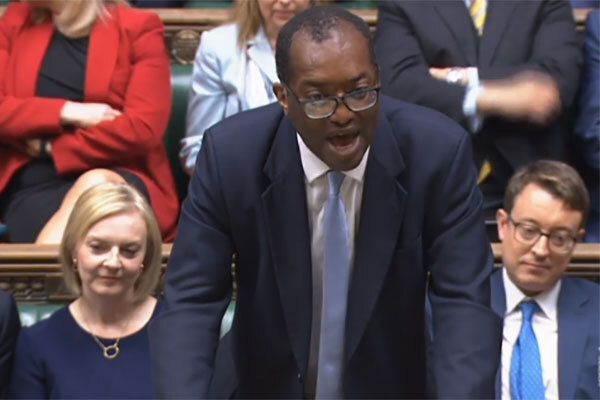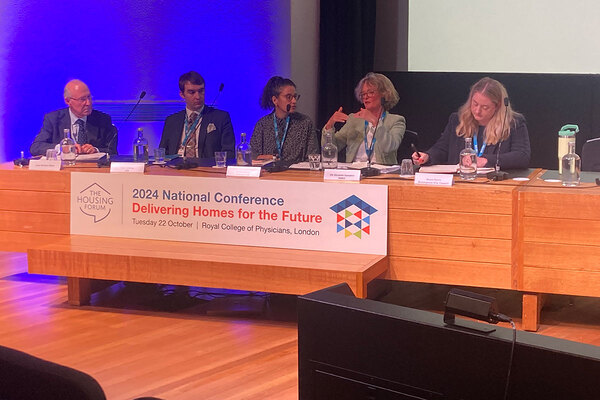You are viewing 1 of your 1 free articles
Mini Budget: extra 120,000 Universal Credit claimants risk having benefits cut
An additional 120,000 people claiming Universal Credit could have their benefits cut unless they take action to get into work under plans announced on Friday.
Delivering his Mini Budget to the House of Commons this morning, chancellor Kwasi Kwarteng said the government will be reducing thousands of people’s benefits if they “don’t fulfil their job search commitments”.
As it stands, claimants working up to nine hours a week at the National Living Wage could have their benefits cut if they do not take action to increase what they earn. This was due to increase to 12 hours on 26 September.
They must also have regular appointments with a work coach.
However, according to the government’s ‘Growth Plan 2022’ published today, the number of hours will further increase to 15 from January 2023.
Mr Kwarteng told the House of Commons: “One of the proudest achievements of our Conservative government is that unemployment is at the lowest level for nearly 50 years.
“But with more vacancies than unemployed people to fill them, we need to encourage people to join the labour market.
“We will make work by reducing people’s benefits if they don’t fulfil their job search commitments.
“We will provide extra support for unemployed over 50s and we’ll ask around 120,000 more people on Universal Credit to take active steps to seek more and better paid work or face having their benefits reduced.”
Published shortly after the chancellor’s speech, the Treasury’s ‘Growth Plan 2022’ provided further details on the benefits reforms.
The government is also planning to “strengthen the UC sanctions regime” to “set clear work expectations”, including applying for jobs, attending interviews or increasing the hours, in return for receiving UC.
No further details on this are included.
It is also planning to provide an additional work coach support to new, eligible over 50s claimants “and – for the first time – to over 50s that are long-term unemployed”.
“This will mean more jobseekers across Great Britain receive intensive, tailored support at jobcentres to help them get into and progress in work, boosting their earnings ahead of retirement,” according to the plan.
Sign up for our development and finance newsletter
Already have an account? Click here to manage your newsletters












